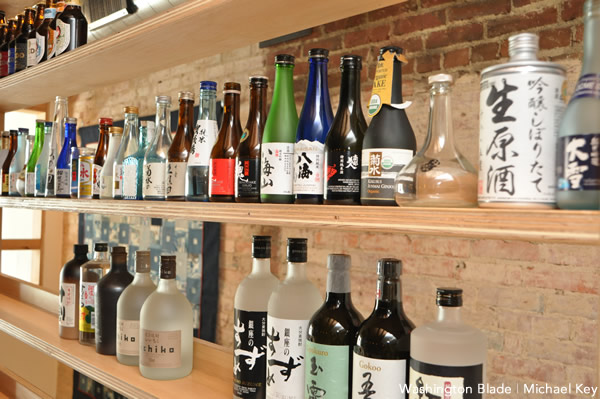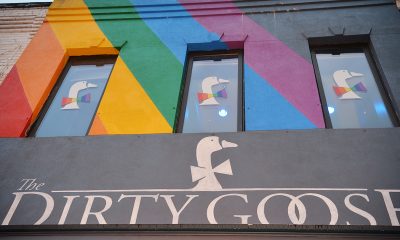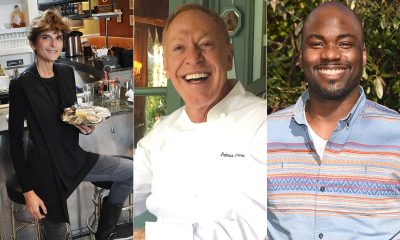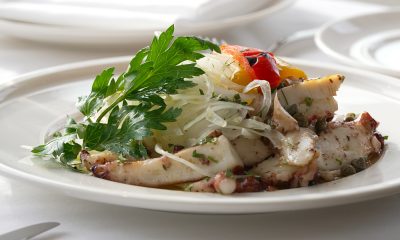Arts & Entertainment
Delightful delicacies
New Izakaya Seki offers a bounty of exquisite Japanese food
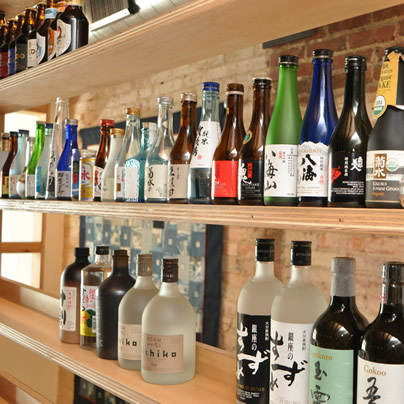
Sometimes studying up a little beforehand or taking along knowledgeable pals can enhance a dinner out tremendously if it’s a realm of cuisine on which one is relatively unschooled.
Father and daughter Hiroshi and Cizuka Seki opened Izakaya Seki (1117 V Street NW) on July 29. They place the sole focus of the restaurant on the exquisite food they serve with a minimalist yet gorgeous design of the space.
I was concerned about eating at a place that was light years beyond my comfort zone, so I brought my husband along with Amanda and Tony, my two “Japanese food experts,” to help me review this experience.
Both Amanda and Tony have eaten at Izakayas in Japan so I asked them to assist me with some of the basics, like eating with chopsticks, the finer points of Sake and how to decide if a rare food like cuttlefish is any good. The Japanese word Izakaya means sitting in a Sake shop, but the word has evolved to describe a casual eating and drinking establishment. Red paper lanterns are traditionally found in front of Izakayas and Izakaya Seki is no different. The lantern out front is one of the sole identifying items of this restaurant.
We had to wait to be seated and since the restaurant is small they took our number and called us when the table was ready. Once seated, our warm, attentive and humorous waitress, Mita, greeted us.
We began with the sashimi special and the Hokkaido Scallop Carpaccio. The Scallop Carpaccio was the first to arrive and with its myogi ginger and the citrus notes of the yuzo, made it a fantastic start to the meal. I was even able to manipulate the thinly sliced raw scallops with my chopsticks. The sashimi special was jam packed with small bites of fresh seafood like shrimp, tuna, clam, octopus and cuttlefish among others. Everything had a fresh, crisp flavor to it and although some of the textures (especially the cuttlefish) did not agree with me, the flavors did. Our first Sake, recommended by Mita to accompany our first two courses, was the Nigori “otter fest” which complemented this raw course perfectly.
We proceeded in order down the menu and selected the Mero grilled with Miso and the beef tongue with yuzu miso. The Mero or Patagonian toothfish — generally marketed as Chilean Sea Bass — was impeccably prepared with a slight sweetness and flakiness that melted in your mouth. The beef tongue was moist and the delicious sauce complemented the rich deep flavor of the tongue.
We moved along slowly. The four of us had already been dining more than an hour and had polished off two bottles of Sake. This is when I was introduced to Scochu. Unlike Sake, Scochu is distilled and the alcoholic content is generally higher. I found the Scochu to have a more refined and delicate flavor. Scochu ranges in price, but if you purchase a bottle and don’t finish it, they will keep it on a shelf in the upstairs dining room with your name on it.
We sipped our Scochu and dined on standout dishes like the cream croquettes with béchamel, crab and corn; the delicious fried tempura vegetables; and the earthy assorted mushrooms. I even tried a bite of the fried tofu with cream cheese, and while it was well prepared and enjoyed by others, I was delighted to discover that I still find tofu repulsive, even fried and with cream cheese.
Finally, our meal ended, in traditional Japanese fashion, with Soba and Chahan. The Chahan (fried rice) was rich, delicate and flavorful, yet difficult to eat with chopsticks.
After nearly three hours, I had completed what felt like a master class in Japanese cuisine, having left few stones unturned. There were however, some recommended dishes we didn’t have room for like the wasabi chicken, the kushikatsu, the kinpiri and the rice balls. As well as some dishes I was not quite ready to try like the sea urchin with quail egg and the monkfish liver.
Overall, this was a perfect evening with friends, a delightful waitress who skillfully guided us through our entire meal and beautifully prepared and presented food. This was, quite possibly, one of the best and most eye opening meals I have eaten in Washington. Plan on spending some time and money on this experience, but you will be rewarded.
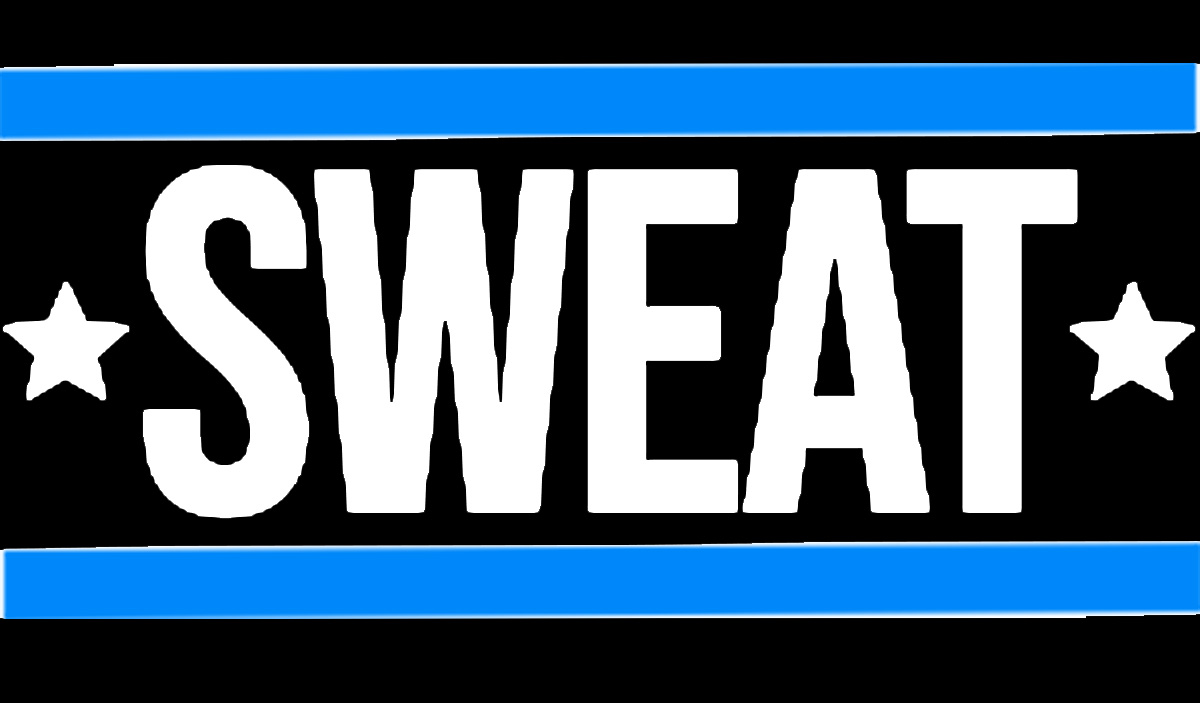
Sweat DC is officially expanding to Shaw, opening a new location at 1818 7th St., N.W., on Saturday, March 28 — and they’re kicking things off with a high-energy, community-first launch event.
To celebrate, Sweat DC is hosting Sweat Fest, a free community workout and social on Saturday, March 14, at 10 a.m. at the historic Howard Theatre. The event features a group fitness class, live DJ, local food and wellness partners, and a mission-driven partnership with the Open Goal Project, which works to expand access to youth soccer for players from marginalized communities.
For more details, visit Sweat DC’s website and reserve a spot on Eventbrite.

Friday, Feb. 20
Center Aging Monthly Luncheon with Yoga will be at noon at the D.C. LGBTQ+ Community Center. Email Mac at [email protected] if you require ASL interpreter assistance, have any dietary restrictions, or questions about this event.
Trans and Genderqueer Game Night will be at 7 p.m. at the D.C. Center. This will be a relaxing, laid-back evening of games and fun. All are welcome! We’ll have card and board games on hand. Feel free to bring your own games to share. For more details, visit the Center’s website.
Go Gay DC will host “First Friday LGBTQ+ Community Social” at 7 p.m. at Hotel Zena. This is a chance to relax, make new friends, and enjoy happy hour specials at this classic retro venue. Attendance is free and more details are available on Eventbrite.
Saturday, Feb. 21
Go Gay DC will host “LGBTQ+ Community Brunch” at 11 a.m. at Freddie’s Beach Bar & Restaurant. This fun weekly event brings the DMV area LGBTQ community, including allies, together for delicious food and conversation. Attendance is free and more details are available on Eventbrite.
LGBTQ People of Color will be at 7 p.m. on Zoom. This peer support group is an outlet for LGBTQ People of Color to come together and talk about anything affecting them in a space that strives to be safe and judgement free. There are all sorts of activities like watching movies, poetry events, storytelling, and just hanging out with others. For more information and events, visit thedccenter.org/poc or facebook.com/centerpoc.
Sunday, Feb. 22
Queer Talk DC will host “The Black Gay Flea Market” at 1 p.m. at Doubles in Petworth. There will be more than 15 Black queer vendors from all over the DMV in one spot. The event’s organizers have reserved the large back patio for all vendors, and the speak easy for bar service, which will be serving curated cocktails made just for the event (cash bar.) DJ Fay and DJ Jam 2x will be spinning the entire event. For more details, visit Eventbrite.
Monday, Feb. 23
“Center Aging: Monday Coffee Klatch” will be at 10 a.m. on Zoom. This is a social hour for older LGBTQ adults. Guests are encouraged to bring a beverage of choice. For more information, contact Adam at [email protected].
Tuesday, Feb. 24
Coming Out Discussion Group will be at 7 p.m. on Zoom. This is a safe space to share experiences about coming out and discuss topics as it relates to doing so — by sharing struggles and victories the group allows those newly coming out and who have been out for a while to learn from others. For more details, visit the group’s Facebook.
Genderqueer DC will be at 7 p.m. on Zoom. This is a support group for people who identify outside of the gender binary, whether you’re bigender, agender, genderfluid, or just know that you’re not 100 percent cis. For more details, visit genderqueerdc.org or Facebook.
Wednesday, Feb. 25
Job Club will be at 6 p.m. on Zoom upon request. This is a weekly job support program to help job entrants and seekers, including the long-term unemployed, improve self-confidence, motivation, resilience and productivity for effective job searches and networking — allowing participants to move away from being merely “applicants” toward being “candidates.” For more information, email [email protected] or visit thedccenter.org/careers.
Asexual and Aromantic Group will meet at 7 p.m. on Zoom. This is a space where people who are questioning this aspect of their identity or those who identify as asexual and/or aromantic can come together, share stories and experiences, and discuss various topics. For more details, email [email protected].
Thursday, Feb. 26
The DC Center’s Fresh Produce Program will be held all day at the DC Center. To be more fair with who is receiving boxes, the program is moving to a lottery system. People will be informed on Wednesday at 5 p.m. if they are picked to receive a produce box. No proof of residency or income is required. For more information, email [email protected] or call 202-682-2245.
Virtual Yoga Class will be at 7 p.m. on Zoom. This free weekly class is a combination of yoga, breathwork and meditation that allows LGBTQ community members to continue their healing journey with somatic and mindfulness practices. For more details, visit the DC Center’s website.
Sports
US wins Olympic gold medal in women’s hockey
Team captain Hilary Knight proposed to girlfriend on Wednesday

The U.S. women’s hockey team on Thursday won a gold medal at the Milan Cortina Winter Olympics.
Team USA defeated Canada 2-1 in overtime. The game took place a day after Team USA captain Hilary Knight proposed to her girlfriend, Brittany Bowe, an Olympic speed skater.
Cayla Barnes and Alex Carpenter — Knight’s teammates — are also LGBTQ. They are among the more than 40 openly LGBTQ athletes who are competing in the games.
The Olympics will end on Sunday.

